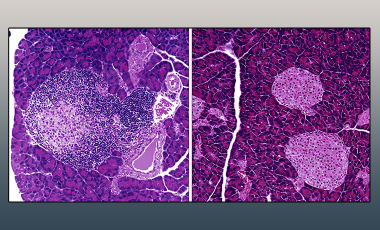As one of the body’s barrier tissues, the skin is subject to damage from physical trauma, ultraviolet radiation, microbial infection and chemical irritants. Immune responses in the skin require the coordinated activity of resident immune cells, as well as cutaneous structural cells such as keratinocytes (KCs), fibroblasts (Fibs), and vascular endothelial cells (ECs).
Indeed, cutaneous T cells produce an array of cytokines that act on KCs, Fibs and ECs to induce specialized host defense and tissue repair responses. While this is helpful in the contexts of skin infection and damage, dysregulated T cell responses in the skin underlie cutaneous inflammatory diseases, and contribute to tissue fibrosis, skin barrier dysfunction and pruritus.
Although long thought to be a unique feature of adaptive cells such as T and B cells, it is now clear that tissue structural cells can also harbor ‘memory’ of prior inflammatory responses in the form of stable epigenetic modifications that alter their transcriptional potential and behavior following subsequent inflammatory stimulation, and this is referred to as ‘inflammatory memory.’
In this project, we are studying the influence of T cell-derived cytokines on development of inflammatory memory in human skin structural cells, and examining how reprogramming of tissue structural cells by T cells during inflammation regulates their functional responses during secondary inflammatory responses. For these studies, we examine T cell cross-talk with skin structural cells using innovative human skin explant and organotypic culture models. We are working with our collaborators, Dr. Hannah DeBerg and Dr. Iris Gratz, to analyze signatures of inflammatory memory in tissue samples from patients with the inflammatory skin diseases before and after cytokine-directed therapies and assess epigenetic reprogramming as a potential therapeutic strategy in a novel pre-clinical skin-humanized mouse model.
We seek to provide a comprehensive and mechanistic analysis of how tissue T cells regulate epigenetic reprogramming and inflammatory memory in a tissue site. Given the availability of drugs targeting key epigenetic pathways, our studies are highly translatable and will provide new therapeutic opportunities to manipulate inflammatory memory to dampen inflammatory skin disease.




